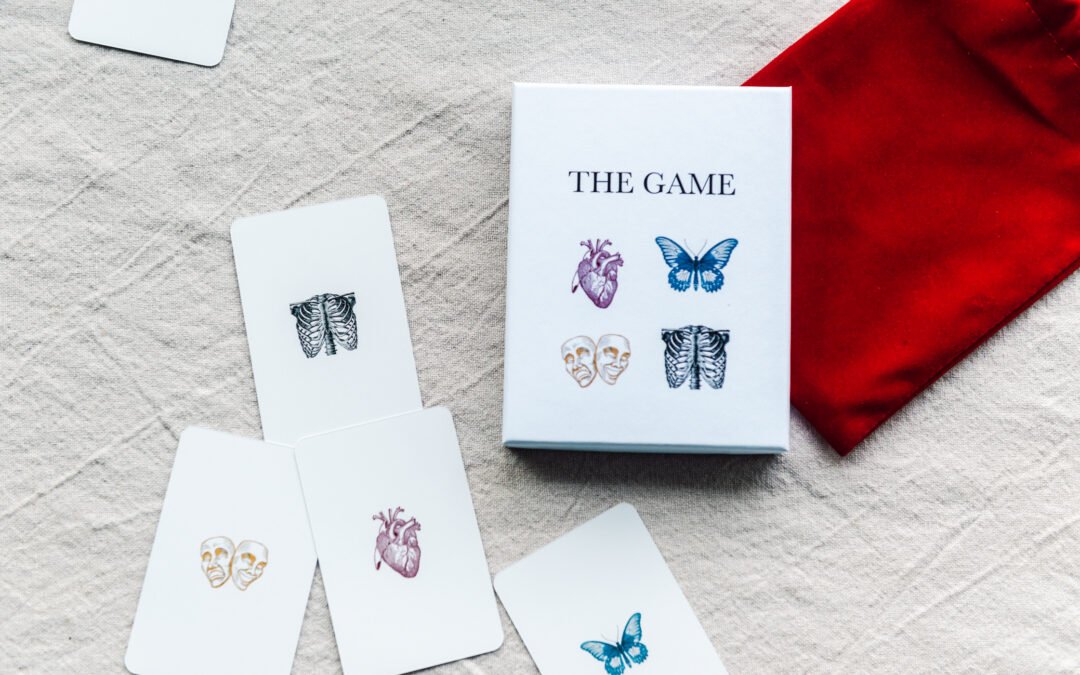Rather sweetly, I was invited recently by a group of people to play The Game and during the evening I was asked “What would you change about it now, if you could design it again?“
The truth is that I don’t think I would change anything significant, however, what I’ve come to realise in the nearly three years since I created it (with the support of all the wonderful contributors) is that I underestimated how easy it is to play badly…
Connection is tricky.
Attempts to get there can easily end up with people feeling over (or under!) -whelmed and disconnected, rather than connected. Despite our best intentions, an impulse can end up creating fragmentation in a group, rather than cohesion.
We are social beings, primed for bonding and connection. Feeling like an outsider, feeling overly exposed or not on being the same page as others can be really uncomfortable and painful.
This was presumably the unfortunate experience of Martina, who some months ago sent the feedback: “Wir werden es auf die Straße stellen, weil wir es sicher nicht mehr spielen. Ein Teilnehmer ist sogar gegangen. Bitte macht es besser!” / “We will put it on the street because we will definitely not play it again. One participant even left. Please do it better!”
Oh dear.
So what is the trick? How do we experience the nourishing, enlivening connection and intimacy that we desire and know is possible? How do you play The Game well?
I believe there’s a simple answer… and yet it’s not easy.
It’s self-responsibility. The opposite of going with the flow or following the authority of another.
Think of the cards as prompts or invitations, rather than instructions. It’s up to you to tune in and see if an invitation is right for you or not and to decide how you will use it.
Adding to the complexity, it’s not just tuning into you, it’s also including the people you’re with and what you as a group might need in order to drop into a more connection.
Not always easy, right?
Being aware of the subtle signals of our bodies, being able to sense a boundary, speaking up when we feel like something isn’t right, thinking of the “we,” not just “me”, being creative instead of following rules – these skills aren’t exactly encouraged in our culture!
So maybe when you sit down to play The Game, you realize you need something slow and gentle to begin with and choose a few cards before you find the right one that you decide to follow. Maybe after the first round, which included a lot of talking, you sense some kind of moment of pausing and integration is needed and you choose a pause card. Maybe the energy starts feeling a bit disjointed and you realise that it flows better to have one question that everyone or several people answer rather than one card per person. Maybe the host decides to curate the cards in advance and only use the cards that suit that particular group.
Feeling pressured to obey and rigidly follow the instructions on each card is a sure fire way to create fragmentation and not have a great time.
My top tip?
If it starts feeling wonky, name it. Speak it out loud.
99% of the time, connecting to what’s happening and giving it a voice, rather than hiding it or hoping it will go away, creates a big ripple of relief and the possibility to move into more connection and ease.
It takes courage but I think that’s definitely one of the things it’s worth cultivating in this world.

